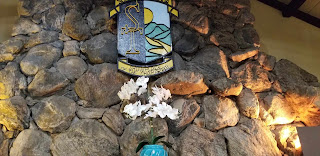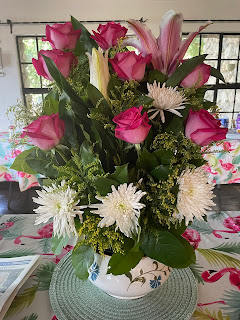Two
segments of open mic will be available and refreshments will
be served. Bring your best poems for the open and enjoy The Bolton Hall
Museum, 10110 Commerce Ave, Tujunga, CA 91040. Bolton Hall is a Los
Angeles Historical Landmark built in 1913. Our reading starts at 4:30 pm and goes till 6:30 pm.
Rick Smith was born in New York. His father was artist William A. Smith whose work is in the National Portrait Gallery, the Metropolitan Museum of Art, and the Library of Congress. When Rick was eight, his father took him to live in post-World War II Paris. There, he experienced the devastating aftermath of war, which features in poems his new collection entitled Ear to the Rail.
The Smiths settled in Bucks County, Pennsylvania where they were once snowed in with Carl Sandberg, a close family friend. Rick began writing during high school at Solebury then honed his craft at Bard College, studying with Anthony Hecht then later with Frank Polite, at University of Iowa, and Sam Eisenstein, at Los Angeles City College. During college, Rick taught himself to play blues harmonica, a lifelong passion. He played “basket houses” in Greenwich Village, and roadhouses in Duchess County, earning his chops with Big Joe Williams, Steve Mann, Van Dyke Parks, and others. Rick recorded with the Rick Smith Band, the Hangan Brothers, and currently The Mescal Sheiks, for whom he is the lyricist.
Rick’s three poetry collections, The Wren Notebook (2000), Hard Landing (2011) and Whispering in a Mad Dog’s Ear (2014) were published by Lummox Press. His poems have appeared in many journals, including Hanging Loose, Wormwood, Ante, Stonecloud, West Coast Poetry Review, Poetry LA, Rock Bottom, and Delirium.
Three Poems by Rick Smith
Entry # 74 from "The Wren Notebook"
Seagull takes an indirect route
to Havana,
is delayed over the Yucatan
while a storm has its way.
She is on a mission,
carrying a message of longing
from those who stayed behind.
Wren holds a grudge,
mistrusts the gull,
always has.
Gull enters Cuban airspace,
becomes intoxicated by
geranium and mint
and by the strains of “La Gavina”
played by a single violin
rising through the airwaves
and distracting her intent.
Gull swells with pride for a moment,
forgets her mission,
drifts off to the Caymans,
spends the day grooming
and dozing by a cluster of ghost orchids.
Judy In Santa Fe
You’re selling Navajo rugs
to a deaf lady
down on The Square.
She needs your lips,
she steps toward you,
parts your hair like a curtain
to see your lips.
You are talking about the red dye,
how they make it
from a thousand crushed beetles.
She needs your lips
to know
how they make red.
from Whispering in A Mad Dog’s Ear (2014) Lummox Press
North Light
......for Mama Smith
Upstairs,
the smell of turpentine
and cadmium red,
oil rags and gesso pads.
It’s what we’ve always known.
And downstairs, you’re cooking
mussels and artichokes,
steam rising from pots.
And the radio is always
between stations.
There is north light
and sometimes flame,
a brain pan in heat.
It’s a signature,
like Imelda’s blue espadrilles,
Batista’s jeep,
like the toothy whistle
of “Sweet Georgia Brown”,
it makes things snap and tick.
At 75 and
stark naked,
holding yourself up
with a cane:
a self-portrait in pencil
and the point
is not
how good you look.
You could live in Chinatown,
join your neighbors for tai-chi at dawn
under the Williamsburg Bridge.
After,
you could walk it off,
the chill of the East River,
steam
off the perfect teacup.
The thing you could not teach me
I am able to learn on my own.
Here,
you’re wearing a straw hat,
no shoes,
and you hold a paint brush
like a baton, no,
a weapon,
landscape in flight:
the sun, the lilies, the river.
A small canvas is taut and
returns the favor.
It fights you,
has a will of its own
just the way you like it.
The button of a heart
I can feel
even at my wrist
and throat.
The pump and pull
of life in my palm,
the way I hold you,
it’s all true
Hanging Loose #83 (2003), Swallow Dance, Silver Birch Anthology (2014)
Carol V. Davis is the author of Below Zero, Stephen F. Austin University Press, 2023, Because I Cannot Leave This Body (Truman State Univ. Press, 2017) and Between Storms (TSUP, 2012). She won the 2007 T.S. Eliot Prize for Into the Arms of Pushkin: Poems of St. Petersburg (TSUP, 2007). Her poetry has been read on National Public Radio, the Library of Congress and Radio Russia. Twice a Fulbright scholar in Russia, she taught in Siberia, winter 2018 and teaches at Santa Monica College and Antioch University, Los Angeles. She was awarded a Fulbright Specialist grant for Siberia in 2020. Her poems have recently been used by Donna Sternberg and Dancers in dance concerts at the Skirball Cultural Center with the theme of ancestors’ voices.Three Poems by Carol V. Davis
It Is Even Colder in Irkutsk
I no longer understand numbers.
-22, -32, what’s the difference?
Branches covered in a sheen of white,
fingers slicked in a second skin.
A breeze barely audible
shudders twigs and snaps icicles.
It’s not that Siberians don’t get cold,
they say, but that they know how to dress.
Sable. Mink. Black Persian lamb.
Fur hats round as kitchen knobs
perch on women’s heads.
Yesterday at a lecture the other women
wore muted shades: gray, lavender, beige.
Why, when this Siberian world must
crave color to survive the long winter?
The Angara River that slices Irkutsk
is frozen, though fisherman cut holes
to catch the prized omul, even in January.
How strange it will be to return to
California, the temperature rarely
dipping below 50 F.
Where I am often cold.
originally published in Prairie Schooner, from Below Zero, Stephen F. Austin State University Press, 2023
Defending the Prairie
You can’t love the mountains if you don’t love the prairie,
the minister’s daughter proclaims, leaning back
in the luncheonette booth.
Books and grasses are what she loves most.
A slight edge when she recounts visitors’
dismissal of these flat fields, as if height overrules all.
The Chassids believe the world is recreated each moment.
The chipping sparrow’s trill bounces from box elder to bur oak
as the cardinal’s two-syllable call, thumps a base line.
The light shifts looking for refuge, hooking
in the bluestem; shadows shrink as the sun hurries
to settle its body for the night. Air cooling,
the meadowlark tests its lungs.
originally published in Poet Lore, from Below Zero, Stephen F. Austin State University Press, 2023
Admiral Nimitz
Every day in summer I’d cross the border;
he’d nod, pick up the horseshoes,
hand me one, triple the size
of my palm, and say, You first. We’d play
away the afternoon. Few words
punctuated the clank of horseshoe
against stake, until the fog rolled in
and I’d retrace my steps home.
I was five or six; he, white-haired,
however old that meant.
One evening my father sat me down,
spoke in the exaggerated tone
adults adapt for children, asked
if I knew who he was.
Admiral Nimitz, of course, though
I knew nothing of his command
of the Pacific Fleet and was less impressed
than if he’d landed a horseshoe.
He was a calm man, a useful attribute
for sending young men to their deaths.
The only time I saw him upset,
raccoons had invaded from their hideouts
in the hills, attacked the goldfish in his pond,
leaving muddy footprints as they escaped.
As far as I knew, this was his only defeat.
from Because I Cannot Leave This Body, Truman State University Press, 2017, reprinted in American Life in Poetry: Column 625




No comments:
Post a Comment